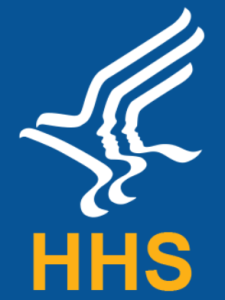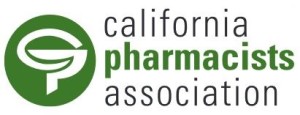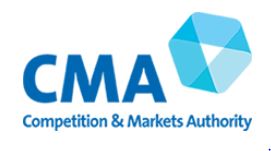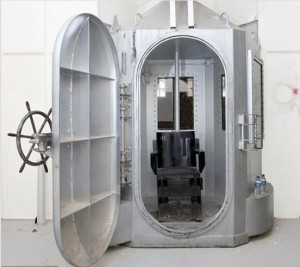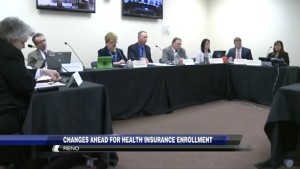- Burwell says HHS is considering ‘march-in’ on skyrocketing drug prices (fiercepharma.com)
Last month, a group of lawmakers urged the National Institutes of Health and the U.S. Department of Health and Human Services to take "extraordinary" action to fight rising drug prices. HHS Secretary Sylvia Burwell responded this week that her agency got the lawmakers' message and is considering rolling out new guidelines to counter skyrocketing prices...The...letter from Doggett and his colleagues asked HHS to issue guidelines for "march-in rights" to address "price gouging" by pharma companies. March-in-rights give the agency the power to skirt patent protections for pricey meds developed with federal funding, effectively opening them up to generic competition...HHS has never used this tactic since the law was enacted in 1980, contending that it is an "extraordinary remedy" that should only be rolled out in extreme situations...Congressional reps contend that the recent price hikes, some of which have run to 5,000%, constitute immediate grounds for action by the agency. "Too many families and providers are facing an extraordinary challenge from unreasonably priced pharmaceuticals" and "too many drugs are not 'available to the public on reasonable terms," the lawmakers said in their letter.
- Medi-Cal Expands Access to Pharmacy-Based Immunizations (myemail.constantcontact.com)California Pharmacist Association - Payment for Pharmacist Services - White Paper (cpha.com)
Last week, the Department of Health Care Services announced the addition of a number of adult vaccines to the Medi-Cal fee-for-service outpatient drug benefit. This means that Medi-Cal beneficiaries in the statewide fee-for-service network can now receive coverage for adult immunizations when administered in a pharmacy. Newly added vaccines include those for Hepatitis A, Hepatitis B, HPV, MMR, and more. Coverage does contain vaccine-specific restrictions...CPhA (California Pharmacist Association) applauds this coverage change to improve patient access to pharmacists' services. "We are excited to see momentum in many areas of SB 493 implementation, including expanded immunizations," said CPhA President Sarah McBane, PharmD. "As more of SB 493's authorities gain recognition by Medi-Cal and other payers, pharmacists stand ready to assist our patients."
- China fines 5 companies for monopoly on drug sales (fiercepharmaasia.com)
China's National Development and Reform Commission has imposed fines totaling $608,000 on 5 mainland drugmakers and distributors for price-fixing of allopurinol, which is considered an essential medicine in China and is widely used to treat gout and hyperuricemia...The NDRC fined drugmakers Chongqing Qingyang, Jiangsu Shimaotianjie, and Shanghai Xinyi, which have been the only three domestic producers of the tablets since 2014, according to the reports. They also fined distributors Chongqing Datong and Shangqiu Huajie..."Five companies have been fined for colluding to manipulate pricing and dividing the market of a common tablet," said...deputy inspector of the Price Supervision and Anti-Monopoly Bureau..."Even though the fine is not the largest issued since the NDRC began bringing actions against pricing collusion, it is significant."
- Nevada’s health insurance exchange nears 80,000 enrollees (reviewjournal.com)
With four days left in the sign-up period, Nevada's health insurance exchange is closing in on 80,000 customers...Nevada Health Link had enrolled 79,055 people by Saturday, the U.S. Department of Health and Human Services said Wednesday...The sign-ups include automatic renewals from 2015, though the federal government didn't break down numbers by existing versus new enrollments...With three days left until the Jan. 31 enrollment deadline, Nevada Health Link has already bested the 72,000 sign-ups it had a year ago.
- UK fines Glaxo $54 million over pay-to-delay deal with generic rivals (statnews.com)
In the latest government effort to penalize unfair competition among drug makers, the United Kingdom fined GlaxoSmithKline $54.5 million for illegally colluding with generic rivals to delay marketing lower-cost versions of the Paxil antidepressant...the UK Competitions and Market Authority found that between 2001 and 2004, Glaxo made payments totaling about $72 million to several generic companies. The deals were reached as part of a settlement to end patent litigation that was filed by Glaxo against the generic drug makers...Such settlements are known as pay-to-delay, since a brand-name drug company pays cash or transfers something else of value to a generic rival, which agrees to delay launching a copycat medicine. In 2001, Paxil was a blockbuster with sales in the UK exceeding $130 million...In this instance, the agreement deferred competition and potentially deprived the UK’s National Health Service of a lower-cost generic Paxil. UK authorities noted that when a generic version of Paxil eventually became available at the end of 2003, average prices fell by more than 70 percent in two years...Cracking down on these practices is essential to protect consumers, to encourage legitimate business activity that such practices stifle, and to stimulate innovation and growth...
- Pharmacies Won’t Compound Lethal Injection for Alabama Executions (pharmacytimes.com)
Alabama recently executed its first inmate using a 3-drug cocktail containing midazolam in place of the more commonly used pentobarbital...This is because compounding pharmacies in Alabama were not willing to make pentobarbital for lethal injection...Four other states’ pharmacies also declined to compound pentobarbital for the Alabama Department of Corrections...Both the International Academy of Compounding Pharmacists and the American Pharmacists Association have issued statements discouraging pharmacists from participation in executions...IACP said compounding lethal injection drugs goes against pharmacists’ focus on healing and care. It also pointed out that state boards of pharmacy could potentially seek ramifications against a pharmacy that knowingly prepares a drug that will cause harm...With manufacturers and compounding pharmacies’ resistance, state departments of corrections may have to turn to alternative methods for executions...in April 2015, Oklahoma approved the use of nitrogen hypoxia in a gas chamber if the state could not obtain lethal injection drugs...In Utah, Governor Gary Herbert signed a law in March 2015 that allows for the use of a firing squad as a plan B.
- Changes Coming To State Health Insurance Enrollment Program (kolotv.com)
If you were around three years ago when health care enrollment got underway in Nevada or better yet, tried to enroll, you know the problems that persisted for more than a year. At that time Nevada had contracted Xerox to run the system and it was a disaster...Now the state is faced with finding another entity to perform the task, and officials here say they are determined to not make the same mistakes...The (Silver State Health Insurance Exchange Board) dropped Xerox and went with the federal system to enroll residents in fall of 2014. But now comes word the feds want to charge our state for using their system..."They want to charge us 3% above the cost now; that could translate into $9,000,000," says Bruce Gilbert, Executive Director of the Silver State Health Insurance Exchange..."We are not talking about building something from scratch. We are talking to other states that have a state-based market place that are successful,"...Gilbert says nothing is set in stone yet. They don’t know what the actual price the feds will be charging to use their program...When that does happen...the board will seriously be looking at other options and bids to run the state’s health insurance enrollment plan.
- Theranos Files Plan to CMS for Fixing California Lab Problems (bloomberg.com)
Theranos Inc. filed a plan to U.S. regulators to fix serious deficiencies at the company’s blood-testing lab in Newark, California, as founder Elizabeth Holmes works to regain credibility for her struggling startup...The company submitted the proposed plan of correction...to the Centers for Medicare and Medicaid Services...Theranos also confirmed the filing, though it didn’t release details of the plan...CMS said in late January that Theranos’s violations of federal regulations posed "immediate jeopardy" to patients’ health and safety...Walgreens Boots Alliance Inc. and...Capital BlueCross have said they’re curtailing use of Theranos’s tests while the shortcomings identified by CMS are addressed. Theranos has hired a new lab director and said it’s working quickly to correct other problems, including personnel issues, along with the defects tied to blood testing...
- How Would Government Negotiation of Medicare Part D Drug Prices Work? (healthaffairs.org)
Medicare Part D premiums have been flat in recent years but will increase by 13 percent from 2015 to 2016...PDPs are also increasingly placing high-cost drugs on specialty tiers within formularies, which require patients to pay as much as 33 percent of the cost of these medications...Given these rising costs, a growing number of policymakers believe the government, through the Secretary of Health and Human Services, should be allowed to negotiate drug prices in Medicare Part D...federal law currently prohibits the government from negotiating with the pharmaceutical industry to lower the cost of drugs purchased under Medicare Part D. Instead, PDPs are required to negotiate directly with pharmaceutical manufacturers to obtain rebates and other discounts on drugs.
Proponents of government negotiation argue that HHS—because of its significant purchasing power—can more effectively negotiate drug prices than individual Part D plans.
Opponents argue that allowing the government to negotiate prices for Part D would inhibit innovation and limit beneficiary access to medications.
...what it means for the government to "negotiate" drug prices.
- Potential Scope Of Negotiations
- Which Drugs Would Be Negotiated?
- What Is Being Negotiated?
- Would HHS Negotiate For All PDPs?
- The Negotiation Process
- Additional Details Needed
- Estimated Cost Savings Of HHS Price Negotiations
- Next Steps
- FDA finds Indian drug maker Wockhardt hid failed tests (reuters.com)
Indian drugmaker Wockhardt hid the results of failed tests and deleted data from its systems at a plant in western India, according to a report by the U.S. Food and Drug Administration...Issues around "data integrity", maintaining accurate and consistent databases, are key to the U.S. watchdog, which regulates the world's largest market for generics producers...Wockhardt is the latest of several major players in the $15 billion Indian drugs industry to be hit by U.S. regulatory action over the past few months...It makes around a fifth of its $670 million in annual revenues from the United States...FDA inspectors also reported finding pharmaceutical ingredients that were not stored or labeled properly. A rejected drug batch was stored in the "approved material" area, and some batches did not carry expiry dates, the report said.

